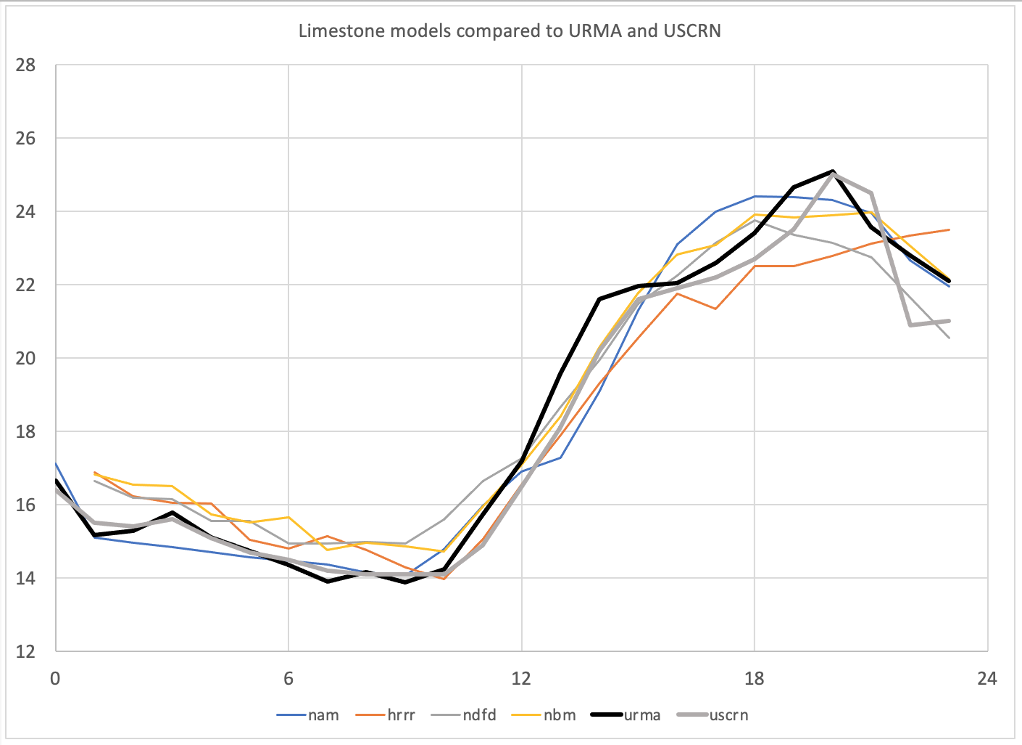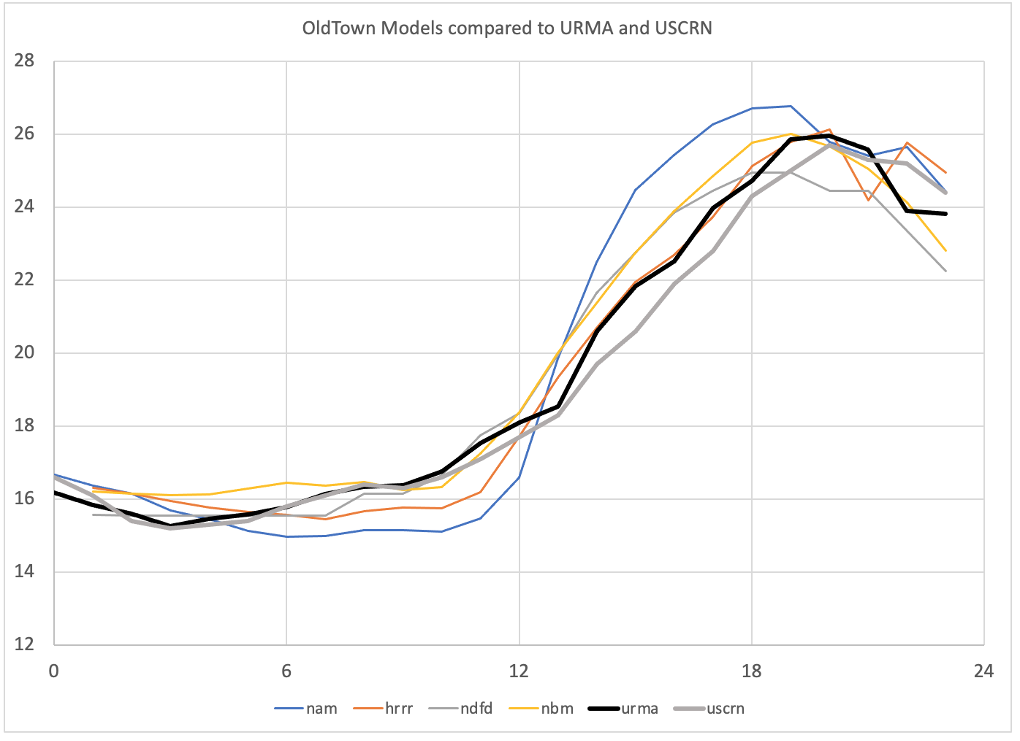Weather Forecasting for Farmers
By: Hannah Jones
Hello everyone! My name is Hannah Jones and I’m a rising junior at Connecticut College, in New London CT. I’m an Environmental Studies major and a Computer Science minor. I enjoy discovering new ways of developing technologies to help sustain our environment. I was drawn to the One Health community due to its interdisciplinary focus on global health and environmental quality.
This summer, I am working remotely with Dr. Sean Birkel in the Maine Climate Change Institute. Our research aims to evaluate weather forecast models to improve weather-based agricultural decision-making in Maine. Agricultural stakeholders throughout Maine rely on weather forecast predictions as a guide for when to plant or harvest produce. To ensure these agricultural sites across Maine have precise forecast data, it is critical to evaluate the accuracy of weather forecast models, in comparison to selected observation sites and gridded datasets that can identify biases. My project involves utilizing the available National Oceanic and Atmospheric Administration (NOAA) /National Weather Service (NWS) regional temperature and precipitation weather forecast models, National Blend Model (NBM), High Resolution Rapid Refresh (HRRR) and North American Mesoscale (NAM). From these models, I collect time series data for temperature and precipitation and compare them to the Climate Reference Network (CRN) and URMA using Excel and NCL coding language. So far, we hypothesize that the NBM model will be the most accurate, as it is a blend of models and therefore eliminates biases.
Figure 1

Figure 2

Through this research I have learned that as climate change continues, accurate predictions of weather become more and more valuable to the greater agricultural community. Working under the mentorship of Dr. Sean Birkel has provided me with a broader understanding of forecast models, their various types, the role they play in predictions and the biases that each model can present. Additionally, learning to use NCL coding language has not only improved my overall coding skills, but has challenged me by working with a language that was previously unfamiliar to me.
The REU ANEW program has given me valuable opportunities to participate in workshops, create professional connections with professors from various departments and explore the One Health Initiative. Regardless of this summer’s REU session being remote, the program has done a great job of ensuring that the student participants connect with one another in meaningful ways. Through our professional development workshops, the REU students as a collective have grown closer and learned how to provide constructive criticism to one another and enhance each other’s presentation skills by being an engaging audience.
